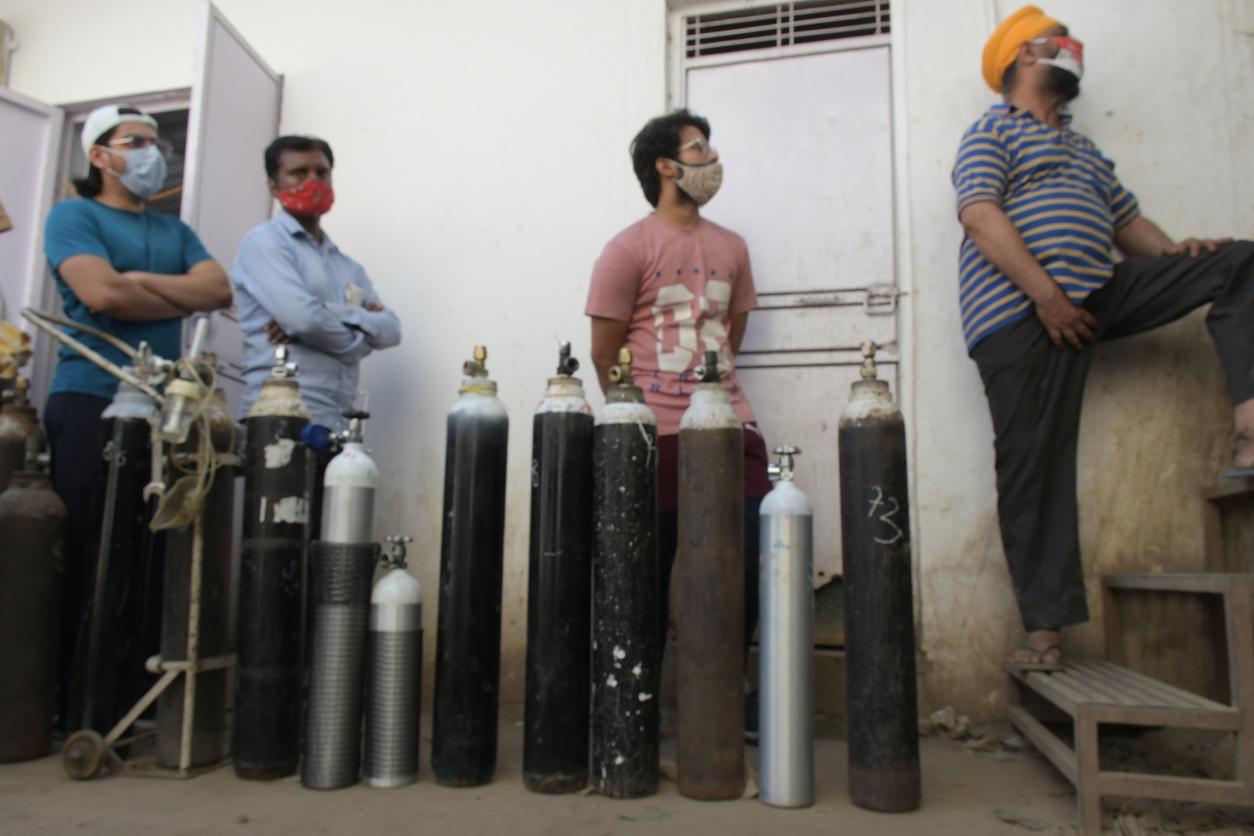Against the backdrop of the world's second most populous country in the grips of a catastrophic COVID-19 surge, the Global Fund today said it approved $75 million to help India buy oxygen concentrators and oxygen plants.
In other developments, several groups and leaders praised the United States' statement yesterday supporting a temporary waiver of intellectual property rights for COVID-19 vaccines, but others warned that the step could hamstring vaccine production.
Meeting medium-range needs for oxygen
With its aid announcement for India today, the Global Fund said the effort is designed to help the country meet its medium-range needs for oxygen, which along with corticosteroids is among the only proven lifesaving treatment for the sickest COVID-19 patients.
Even before the pandemic, low- and middle-income countries faced oxygen shortages, and COVID-19 is pushing their health systems to the brink, the Global Fund said. India and its partners are addressing acute needs, and the group's response is geared toward higher-output solutions that will help as the country's outbreak unfolds.
Peter Sands, MPA, the Global Fund's executive director, said India's situation is heartbreaking. "Oxygen will save lives, but it is only part of the solution," he said. "We must massively scale up testing and vaccinations to stop the spread of COVID-19 in India and worldwide."
The Global Fund said it can mobilize $10 billion this year to help countries battle COVID-19 and address the impact the pandemic is having on HIV, tuberculosis, and malaria. The new funding announced today comes on top of $36.8 million in COVID-19 money for India that it approved last year.
For the second day in a row, India's daily total topped 400,000 new COVID-19 infections, reaching another record high with more than 414,000 new cases. Though some of India's biggest cities, such as Mumbai and New Delhi, have been major hot spots, the virus is spreading to rural areas where health services and testing capacity are limited, according to Reuters.
So far, India's prime minister hasn't ordered a national lockdown, but several states have taken that or similar steps. Kerala state today announced a 9-day lockdown that will begin on May 8.
Reactions to vaccine intellectual property announcement
Several groups, including the World Health Organization and Doctors Without Borders, yesterday commended the United States for taking the lead on announcing its support for a temporary waiver on intellectual property rights for COVID-19 vaccines. The step was proposed by South Africa and India as a way to boost the vaccine supply and lead to more equitable access, though the World Trade Organization still needs to negotiate the waiver, which could take months.
Following the US announcement, the European Union said it was ready to discuss the COVID-19 vaccine patent waiver, according to Reuters. However, drug makers are pushing back against the idea. For example, the International Federation of Pharmaceutical Manufacturers & Associations said in a statement yesterday that though it supports quick and equitable access, a waiver is a simple but wrong answer to a complex problem, which also involves trade barriers, supply chain bottlenecks, raw material shortages, and country willingness to share supplies with other nations.
German Chancellor Angela Merkel said today that she opposed the waiver, which she said would create "severe complications" for vaccine production, according to Bloomberg News.
In a separate vaccine development today, Gavi today announced that it has signed an advance purchase agreement with Novavax for 350 million doses of its baculovirus COVID-19 vaccine. The purchase hinges on the vaccine's approval, and doses would be delivered during the third quarter of this year.
More global headlines
- Canada yesterday became the first country to authorize emergency use of the Pfizer-BioNTech vaccine for children ages 12 to 15 years.
- In Asia, Tokyo's state of emergency has been extended until the end of May; Maldives ordered a night curfew to slow the spread of the virus; Fiji is battling a spike in cases, and authorities have locked down a large hospital; and Indonesia has banned travel during Eid al Fitr due to worries about spreading the virus.
- The global total topped 155 million today and is at 155,469,546, and 3,247,434 people have died from their infections, according to the Johns Hopkins online dashboard.





















